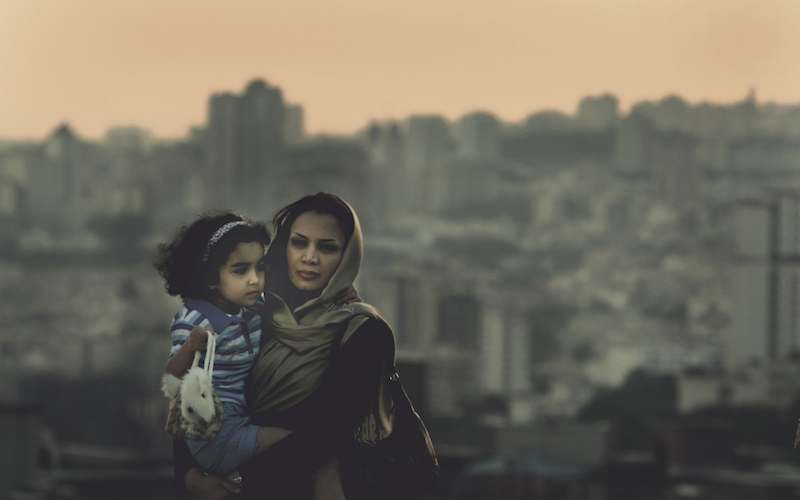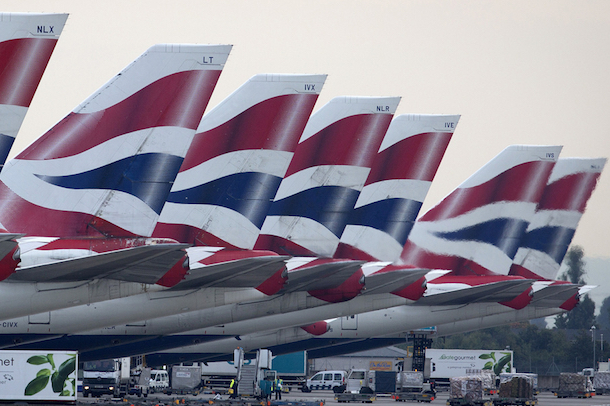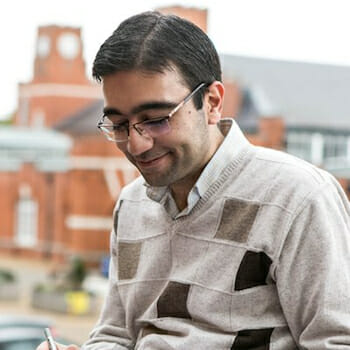
Iran and Britain: A New Chapter
On July 14, 2016, precisely one year following the conclusion of the landmark nuclear accord between Iran and the six major world powers, dubbed the Joint Comprehensive Plan of Action, the flag carrier airline of the United Kingdom, British Airways, will be re-launching direct flights between London and Tehran. The service was suspended in October 2012 as the company officials believed the route was “no longer commercially viable.”
The decision by the British airliner to resume return flights to the Iranian capital comes on the heels of new steps taken by the governments of Iran and Britain to normalize and improve their precarious relations, which plummeted to an all-time low after the British Embassy in Tehran was ransacked by a mob in 2011 when the ultra-conservative Mahmoud Ahmadinejad was president. Shortly after the assault on the British diplomatic compounds, the then-Foreign Secretary William Hague announced that Iranian diplomats would be expelled from London. He also ordered the immediate closure of the British Embassy in Tehran.
Right now, meeting with UK Prime Minister @David_Cameron @Number10gov. #ConstructiveEngagement #WAVE pic.twitter.com/6F9ZZichlP
— Hassan Rouhani (@HassanRouhani) September 24, 2014
Subsequent to the coming to power of Hassan Rouhani, the pragmatist, moderate cleric who had campaigned on a platform of “constructive engagement” with the international community in the 2013 presidential election and appealed to millions of Iranians fed up with redundant, pointless confrontations with the world under President Ahmadinejad, detente was unswervingly put on Tehran and London’s agenda. For the first time since the Iranian Revolution of 1979, the leaders of the two countries conferred in 2014, as President Hassan Rouhani went to British Prime Minister David Cameron’s residence in New York to meet him on the sidelines of the UN General Assembly.
Since then, the two nations steadfastly pursued efforts to reestablish normal relations. The British Embassy in Tehran was reopened in August 2015 upon a surprise visit to Tehran by the Foreign Secretary Philip Hammond, who became the first British government official to travel to Iran in more than a decade.
The July 2015 nuclear agreement, implemented on January 16 this year – marked with the much-anticipated termination of draining economic sanctions against Iran – injected fresh blood into Iran’s business, tourism and aviation sector and positioned the nation to swiftly reintegrate into the international community.
Since last summer when the JCPOA was inked, 3,763 businesspeople from nearly 50 countries flocked to Iran to test the waters for the resumption of lost trade connections or inception of new links. The number of foreign tourists visiting the country has surged spectacularly and many European airliners, including Air France and Eurowings announced that they’ll launch flights to Iran, while Lufthansa and Austrian Airlines said they’ll increase flight frequencies to the Iranian capital, poised to become a blossoming commercial hub in the Persian Gulf region.
However, amongst all the auspicious developments taking place in the post-sanctions period for Iran and the new openings with the world that will eventually serve to uplift the livelihoods of the Iranian people and take them out of economic strangulation, the rejuvenation of Iran’s relations with Britain is important in a special way. The United Kingdom has historically been a close trading partner of Iran. According to the British Parliament, Iran was the 7th largest exporter of crude oil to the Kingdom in 2011, placed above such competitors as Venezuela, Qatar and Saudi Arabia. Additionally, Britain was Iran’s third largest trade partner among the EU countries, and UK Trade and Investment’s estimates have put the value of British exports to Iran at $1.24 billion for the 2005/06 period.
More importantly, there’s a dynamic, 70,000-member Iranian/Persian community across Britain that has been persistently contributing to the progress of British society, and has nurtured many great figures in politics, academia, sciences, arts, business, media and even sports. Some of the familiar names include Nasser Khalili, the noted art dealer, and philanthropist, who has been designated a UNESCO Goodwill Ambassador and as reported by the Forbes, is the 36th wealthiest person in the United Kingdom. Mr. Khalili was honored as Knight of the Pontifical Equestrian Order of St Sylvester (KSS) by the late Pope John Paul II.

The other indispensable name is Christiane Amanpour, a brilliant TV journalist hosting the CNN International’s nightly interview program “Amanpour” in which she has interviewed dozens of prominent world leaders and famed politicians. According to the PR firm Burson-Marsteller, Christiane Amanpour is the journalist that most world leaders follow on Twitter. Her Twitter handle is followed by 1.64 million users, including 69 heads of state, government, foreign ministers and their affiliated institutions.
The life peer in the House of Lords Haleh Afshar OBE, the Cambridge University economist Mohammad Hashem Pesaran and the Harvard Graduate School of Design Dean Mohsen Mostafavi are simply a few other names among hundreds of prosperous and distinguished British-Iranians who bring pride and glory to the Iranian community in Britain.
Aside from the business and cultural bonds and the presence of a pretty vigorous Iranian community in Britain, the Kingdom is a well-liked country for Iranian students who prefer to pursue their academic ambitions somewhere in its deep-rooted, eminent institutions of higher education.
As reported by QS, 3,372 Iranian students studied in Britain as of April 2015, constituting around 6% of Iranian students enrolled in undergraduate or postgraduate programs abroad. According to the same report, the UK is the third most popular destination for Iranian students after Malaysia and the United States.
With the elimination of hostilities that have been keeping the Iranian and British governments apart, there’s apparently no reason for the two societies to remain alien to each other. The Daily Telegraph travel reporter Lizzie Porter, who was unluckily denied an Iranian visa last year, is apparently an Iran enthusiast and beautifies her travel stories with photos of Iran’s historical and natural attractions, and often posts tweets with the hashtag #MustSeeIran, a movement initiated by Iran’s e-activists to promote the country’s tourism and travel industry. Iran was featured by the UK edition of National Geographic Traveler as the first country in its list of top 16 travel destinations for 2016. In October 2015, the Daily Mail published an elaborate pictorial report of the country’s various ancient magnets, mosques, palaces and natural sites, posing the blunt question, “Could Iran be the top tourism destination of 2016?”
With prudence and a serious commitment to settle one of the most tedious diplomatic disputes of the post-Cold War era through negotiation and logic, Iran demonstrated that it’s not a pariah state. The new beginning in Iran’s relations with Britain, which the Rouhani administration is committed to preserve and bolster, signifies that Iranians are bracing for a redefinition of their links with the international community, especially the people of Britain, who despite the ups and downs of the recent times, have always been willing to travel to this mostly undiscovered land and learn about the delicacies of life and culture in a country that inherits one of the world’s oldest and most venerable civilizations.
Of course if one judges Iran by such measures as the number of its executions, prisoners or banned newspapers, then I’ll be happy to come up with arguments – not excuses – to convince them that singling out Iran over its human rights record won’t improve it, while in its immediate neighborhood, women are still not allowed to drive cars. But my conscious judgment informs me that Iran is a place to explore not found elsewhere in the world; from the complexities of a rich culture to the sophistication of an educated population thirsty for interaction with the outside world.

